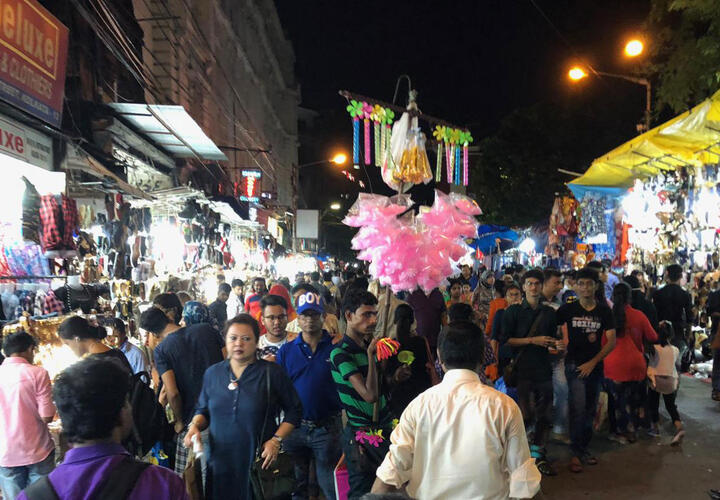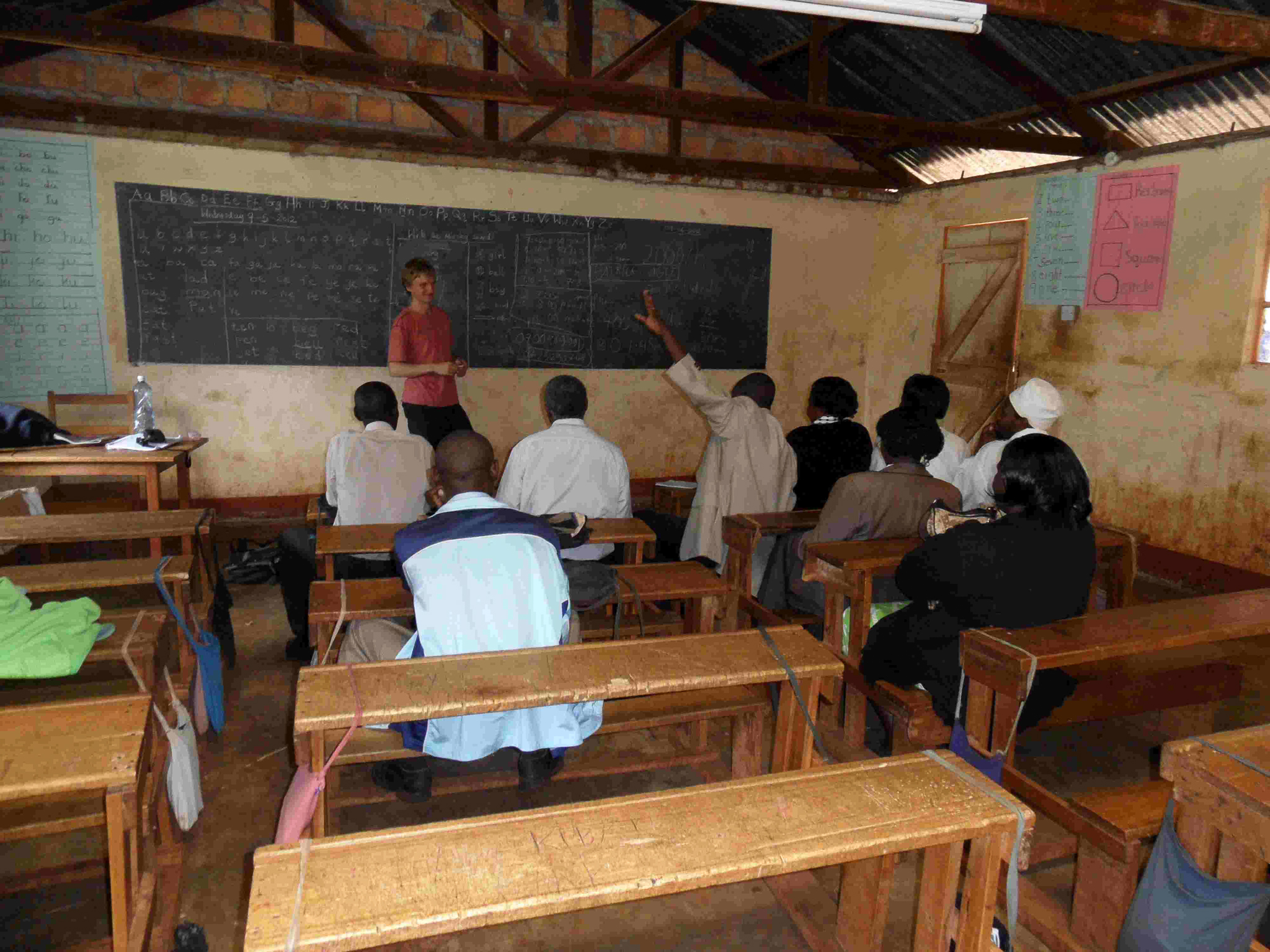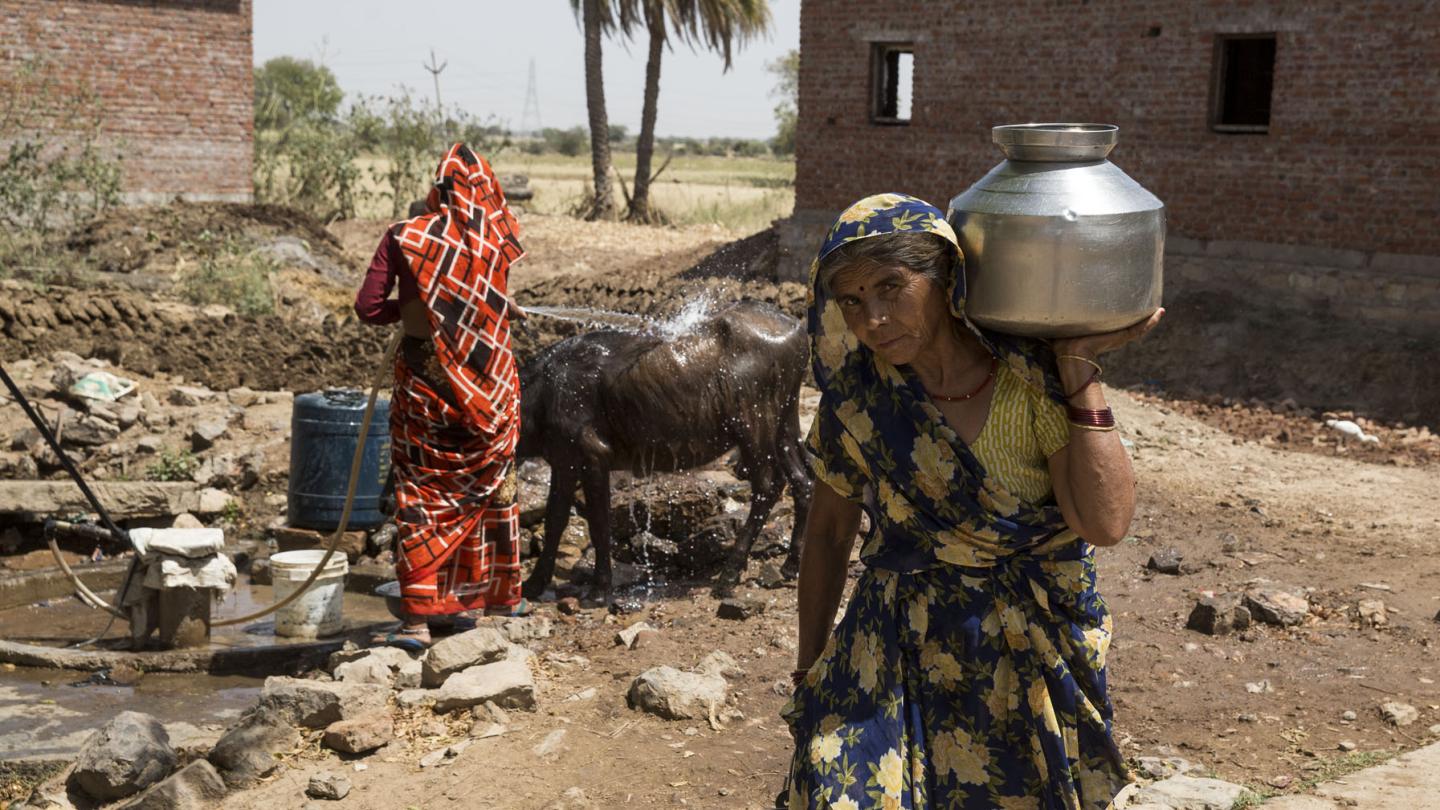Patrick Agte on the long-term intergenerational effects of business income boosts
The EGC Postdoctoral Associate unpacks the diverse effects of microenterprise growth for low-income entrepreneurs and their children more than a decade later.

India has one of the world’s lowest rates of intergenerational educational mobility – meaning, children of parents with limited education levels are more likely to attain similarly low levels of schooling. This constrains their upward social mobility and perpetuates inequality. To address this challenge, many poverty-reduction programs emphasize the development of small businesses as a means of generating self-sustaining income growth for
 Vestal McIntyre
Vestal McIntyre
the poor that, in theory, can enable parents to increase investment in their children’s education and disrupt the cycle of low intergenerational mobility.
However, new research by 2023 Princeton PhD Patrick Agte – along with EGC’s Rohini Pande and coauthors Arielle Bernhardt, Erica Field, and Natalia Rigol – finds that such interventions often have unexpected impacts in the long term. Analyzing 11 years of survey data following a 2007 experiment that provided flexible micro-loans to low-income entrepreneurs in Kolkata, the researchers generated results that shed new light on the challenge of boosting intergenerational mobility in low- and middle-income countries. In particular, low-income households often face difficult trade-offs between investing the new income in their children’s education or spending it on more pressing business opportunities.
This fall, Agte begins a postdoctoral fellowship at EGC working with EGC affiliate Christopher Neilson and contributing to the Gender and Growth Gaps project and the Inclusion Economics initiative, a policy-engaged research initiative based out of EGC and the MacMillan Center.
Research in the university and on the ground
Agte grew up in Berlin and first became interested in development economics after high school, during a gap year trip to western Kenya. While living with a host family in a rural farming region, he volunteered with a small NGO that offered micro-loans to small-scale farmers – learning firsthand how important access to finance is for entrepreneurship and economic development. He marveled at M-PESA, Kenya’s innovative mobile payment system, which was developed by a private telecommunications firm but enabled low-income entrepreneurs to process business transactions and access financial support like micro-loans.
 Patrick Agte
Patrick Agte
Agte during his gap year trip to Kenya, 2012.
The experience shaped his appreciation for development’s complexities. “On the one hand we see the negative sides of poverty, but you also see the people growing and developing. You see a lot of local innovation and excitement,” Agte said in an EGC interview. “I knew I wanted to work in development, but I realized that it’s not just about giving aid or starting an NGO.”
Agte’s experience in Kenya inspired him to study development economics as an undergraduate student at the University of St. Gallen in Switzerland. Over the next few years, he explored a range of professional paths – including academic research, working in the private sector, and a job at the German development bank KfW – but ultimately decided on a career in academia. During a semester abroad at Harvard, he met Pande (then a faculty member at Harvard Kennedy School) and worked as an assistant on an earlier phase of the Kolkata intergenerational mobility project.
“My favorite part of working in development economics is being in the field,” Agte said. “It gives so much more meaning to the work you’re doing – and it also gives you more ideas.”
Gender and Growth Gaps Project
The project brings together a cross-cutting team of Yale economists to explore the economic dimensions and consequences of gender inequality and to impact gender-intentional policymaking in low- and middle-income countries.
 Ishan Tankha
Ishan Tankha
Agte went on to a PhD program at Princeton and further research in both India and Peru. Thomas Fujiwara, Associate Professor of Economics and International Affairs at Princeton and a former advisor, said that Agte’s approach to field work sets him apart. “He’s very good going to the country, talking to policymakers and other people on the ground, understanding what the important questions are and the connection to research,” Fujiwara said. “He’s been really successful with this approach.”
Business investment over child schooling: An intergenerational inequality issue
The new paper follows up on a 2007 intervention in Kolkata – the same study that Agte worked on during his semester at Harvard as an undergraduate. That experiment gave flexible micro-loans to 845 low-income entrepreneurs. While some clients had to start paying back the loan immediately, a randomly selected set of clients was given a six-week grace period. By encouraging higher-return investments, the effects of this grace period on business growth and profits were dramatic: by 2010, recipients of the flexible loans had 19.5% higher average household income than recipients of the standard loans.
“On the one hand we see the negative sides of poverty, but you also see the people growing and developing. You see a lot of local innovation and excitement... I knew I wanted to work in development, but I realized that it’s not just about giving aid or starting an NGO.” – Patrick Agte
Agte and his coauthors followed up in 2018, reviewing survey data to gain additional insights on the intervention’s effects. In particular, they focused on a trade-off that the participating households faced: whether to invest the additional income into their business or to invest in their children’s education. Since using the money to make business investments ultimately created substantial earnings increases for the low-income entrepreneurs, choosing to spend it on their children’s education represented a major opportunity cost.
Overall, the 2018 survey data revealed that children in treatment households are 37% more likely to attend college. Unpacking this finding, however, Agte and his coauthors discovered that households with less-educated parents were far more likely to instead use the extra money to invest in their businesses. This inequality is remarkably stark: in households with two literate parents, college attendance increased by almost 50% – whereas children with at least one illiterate parent are 44% less likely to even complete secondary school, and many children from households with illiterate parents report dropping out of school in order to contribute to the family business.
Over 11 years, these differences in educational investment choices between literate and illiterate households had far-reaching effects on business performance and income. In 2010, all participating households reported short-term income gains from the flexible micro-loan. By 2018, however, these gains had faded for literate households, while illiterate households reported 45% higher profits, three times more enterprise capital, and 30% higher monthly income than their counterparts in the control group. Household labor decisions changed as well. While literate treatment households had fewer household members working in the household enterprises, the number of household workers as well as child self-employment increased among illiterate treatment households.
In short, the study shows how the link between parental and child education can affect intergenerational education and earnings mobility. It underscores the importance of long-run follow-up surveys and the analysis of relative treatment effects among more and less vulnerable populations, and not exclusively of average treatment effects. And at a macro level, it sheds light on why rapid economic growth in low- and middle-income countries can nonetheless be paired with increasing inequality and poor intergenerational mobility.
Working at Yale to examine the constraints to human capital
As an EGC Postdoctoral Associate, Agte will continue researching issues related to human capital development. For example, he is investigating India’s efforts to undertake one of the world’s largest expansions of public primary healthcare. In education, Agte and EGC affiliate Christopher Neilson and co-authors are evaluating programs in Chile and the Dominican Republic to help parents make better decisions about where to send their children to school.
Eight years after meeting Pande and starting to work on the India project, Agte says that New Haven is an ideal place to continue pursuing his intellectual passion for issues related to economic development and human capital investment. He looks forward to spending his next chapter at EGC and continuing to research these meaningful topics. “I’m very excited to join Yale and be part of the EGC community,” he said.
Written by Peter Zhang.